Feb. 25, 2022
Grooved pipe fittings are mainly made of ductile iron(Fittings shall be manufactured of ductile iron conforming to ASTM A-536, forged carbon steel conforming to ASTM A-234, or factory fabricated from carbon steel pipe conforming to ASTM A-53.), and ductile iron pipes and fittings are ideal pipes for urban water supply and gas pipework. They have the advantages of high strength, superior plasticity and strong corrosion resistance, and have the function of iron and steel. It is a replacement product of traditional cast iron pipes and ordinary steel pipes. It is a pipe commonly used in pressure water supply and gas transmission, specifically for the municipal water and wastewater distribution and transmission markets, industrial, and power markets including fabrication for treatment plants and pump stations. It has the characteristics of high strength, superior toughness, corrosion resistance, and easy installation. Gray iron pipes and ordinary steel pipes are traditional options. Water supply and gas transmission industries have adopted these updated products as preferred materials.
Ductile iron is obtained by spheroidization and inoculation treatment to obtain spheroidal graphite, which effectively improves the mechanical properties of cast iron, especially the plasticity and toughness, so as to obtain higher strength than carbon steel. Ductile iron is a high-strength cast iron material developed in the 1950s. Its comprehensive performance is close to that of steel. Based on its excellent performance, it has been successfully used to cast some complex castings. Ductile iron has rapidly It has developed into a cast iron material that is second only to grey cast iron and is widely used. The so-called "replacing steel with iron" mainly refers to ductile iron.
Ductile iron pipes and fittings are a type of cast iron pipes and fittings. Cast iron pipes must be spheroidized to between 1-3 grades (spheroidization rate > 80%) to ensure their quality. This enhances the mechanical properties of the material itself, which consists of the characteristics of iron and the performance of steel. The metallographic structure of the annealed ductile iron pipe is ferrite plus a small amount of pearlite, which has high mechanical properties, excellent anti-corrosion performance, superior elongation performance, effective sealing effect, and easy installation. It is mainly used for water supply and gas transmission in municipal, industrial and mining enterprises. , oil transportation, etc.
There is a certain amount of spherical graphite distributed on the ferrite and pearlite matrix. According to the different nominal diameter and elongation requirements, the proportion of ferrite and pearlite in the matrix structure is variable. In addition, the proportion of small diameter pearlite is different. Generally, not more than 20% and the large diameter is generally controlled at about 25%.
In the 21st century, Chinese foundry enterprises have achieved rapid development and growth; by 2013, the output of castings will reach 45 million tons; the annual output of cast iron pipes is about 6 million tons, of which centrifugal ductile iron pipes for water supply pipelines are about 5 million tons. About 800,000 tons of centrifugal grey cast iron drainage pipes; about 250,000 tons of various cast iron pipe fittings; cast iron pipe fittings are generally produced by clay sand, coated sand, sodium silicate sand, resin sand, lost foam, and V method casting process;
Minimum tensile strength: 420/Mpa,
Minimum yield strength: 300/Mpa,
Minimum elongation: 7%,
Calibre: DN80-DN2600.
1. Prevent pipe burst,
2. Small diameter and large flow,
3. High-pressure long-distance transportation.
The common production process of ductile iron pipe:
1. Water-cooled metal mould centrifugal casting,
2. Resin sand lined centrifugal casting,
3. Centrifugal casting by hot mould method.
1. Clay sand casting process,
2. Coated sand casting process,
3. Resin sand casting process,
4. Casting process of sodium silicate sand (the water glass process is difficult to clean because of the high residual strength of sodium silicate sand; the application of this process on cast iron pipe fittings is now being phased out),
5. Lost foam casting process,
6. V method casting process.
1. Clay sand casting process (DN80-DN300)
2. Coated sand casting process (DN80-DN200)
3. Resin sand casting process (DN80-DN2600)
4. Lost foam casting process (DN400-DN1200)
5. V method casting process (DN80-DN2600)
| Galvanized Grooved Pipe Fittings | 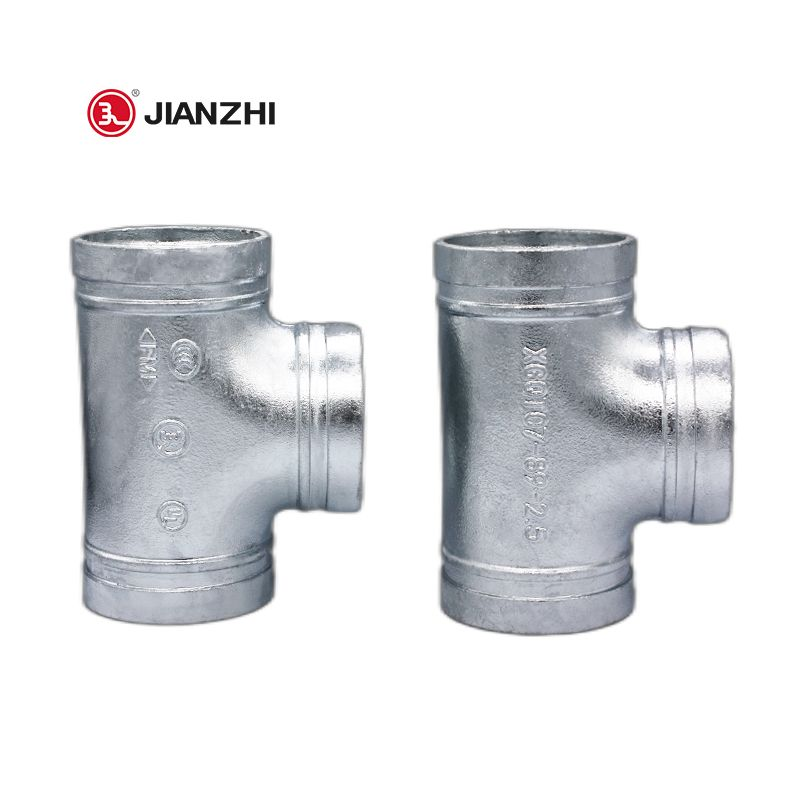 |
| Grooved Coupling Rigid Coupling XGQT01 | 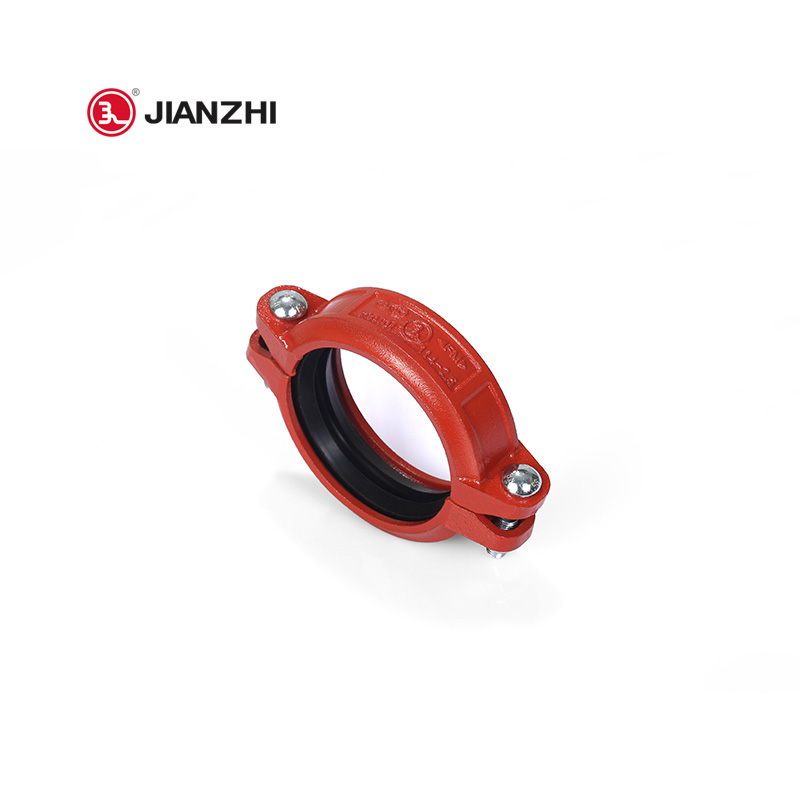 |
| 11.25° Grooved Elbow XGQT06 | 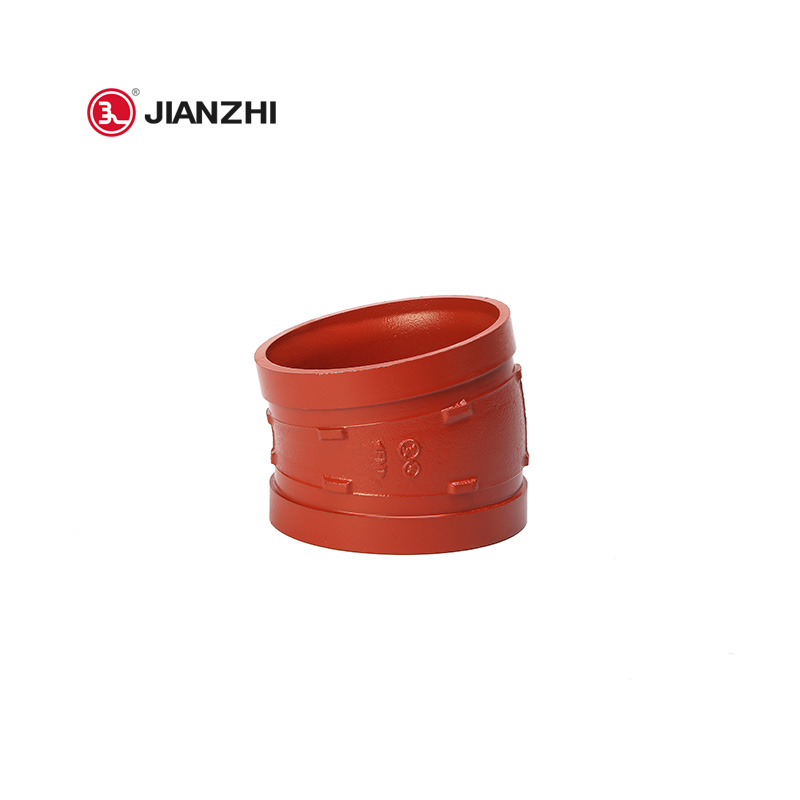 |
| Grooved Adaptor Flange XGQT13 | 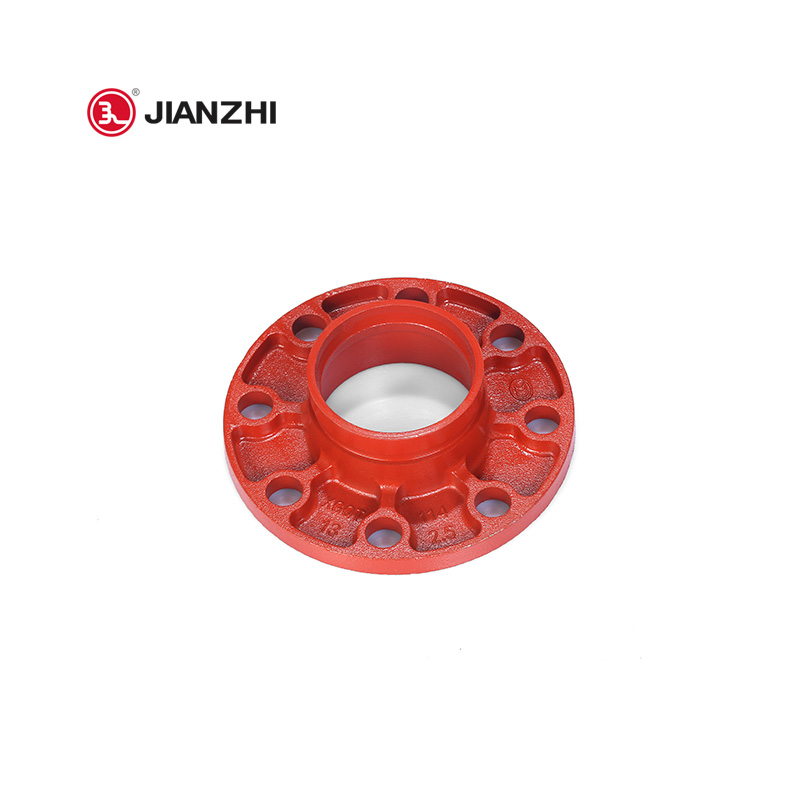 |
| Grooved Threaded Mechanical Cross XGQT15 | 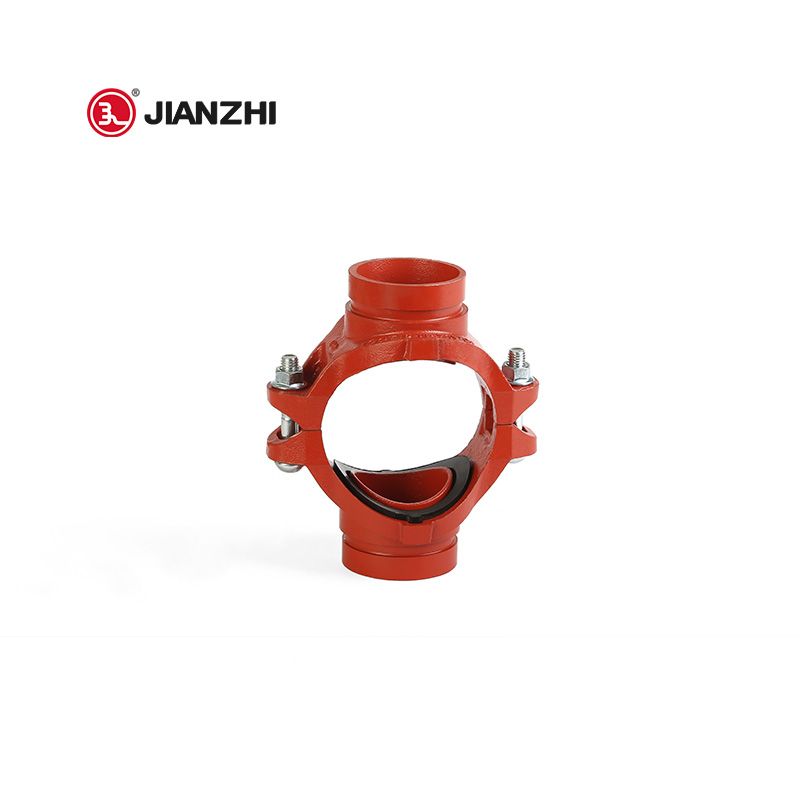 |
If you have a commercial enquiry or require technical support please contact JIANZHI.
SAFER
PRODUCT INFO
ABOUT JIANZHI
TECH DATA
Contact Us
E-mail: sales1@jianzhi-fitting.com
Tel: +86 18698027872
Office In Tianjin:
Heping District, Tianjin, China.
Production Base 1:
Chifeng, Inner Mongolia, China.
Production Base 2:
Tangshan City, Hebei Province, China.
Production Base 3:
Schelei Street,Baicoi City,Prahova County,Romania
Service email: info.ro@jianzhi-fitting.com
Sales email: market.ro@jianzhi-fitting.com
Tel: +40(755)011 849
